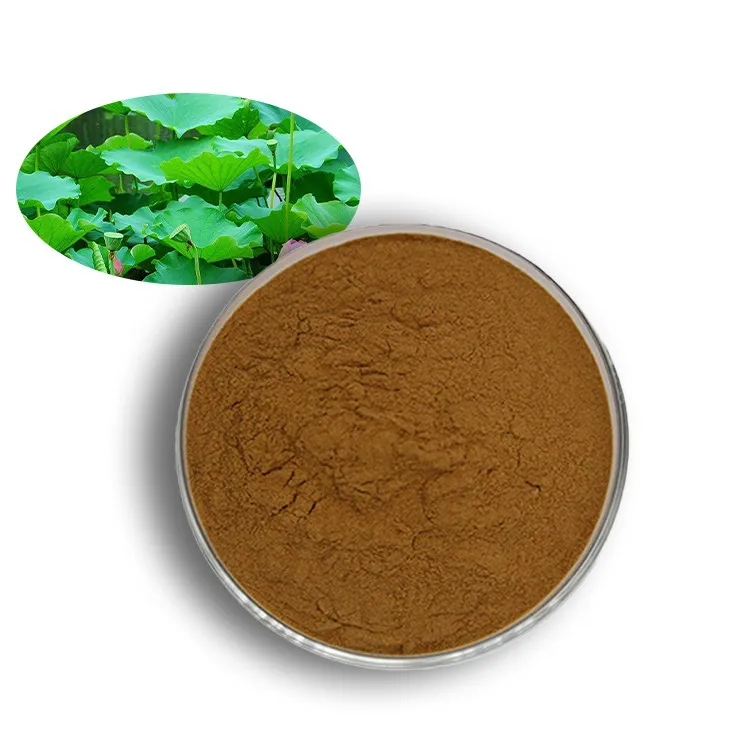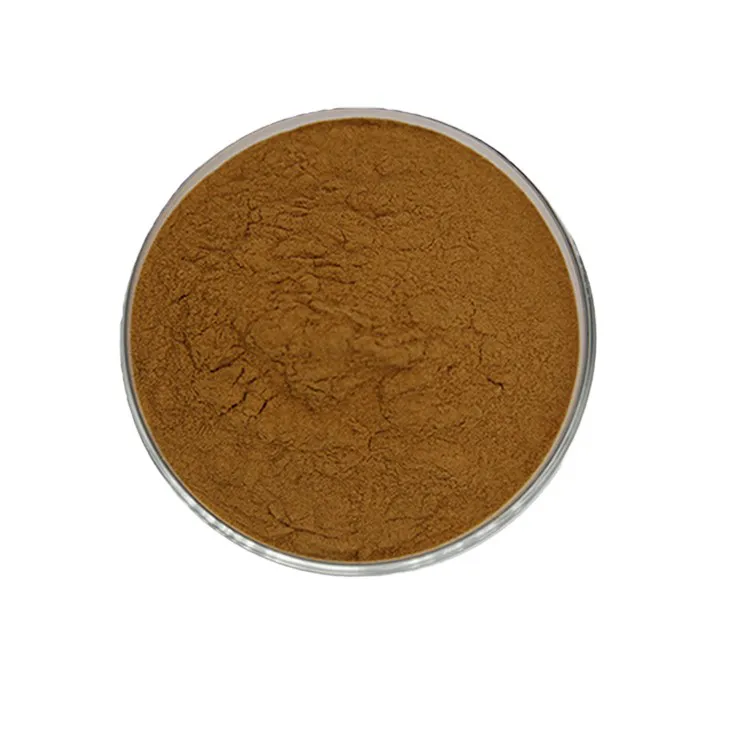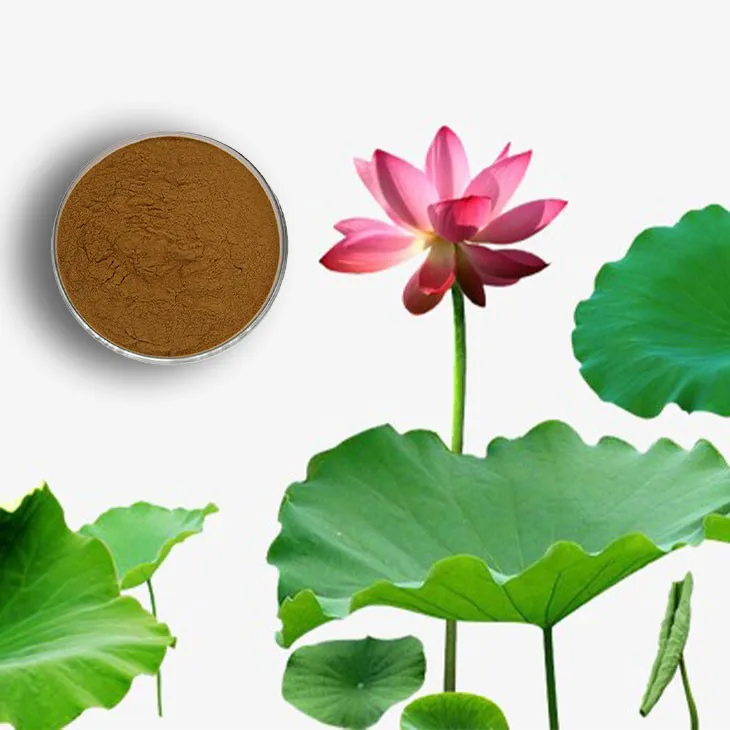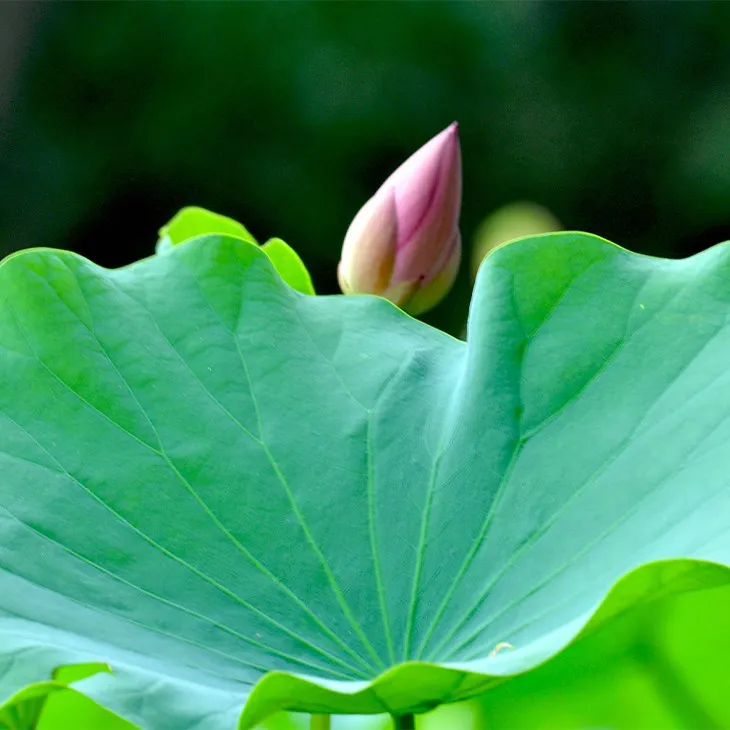- 0086-571-85302990
- sales@greenskybio.com
Lotus Leaf Extract - Uses and Benefits for Refreshing the Mind and Stimulating the Brain.
2024-11-13

Introduction
The lotus plant has been revered in many cultures for centuries, not only for its aesthetic beauty but also for its potential medicinal properties. Among the various components of the lotus, the Lotus leaf extract has emerged as a substance with remarkable implications for the human mind. In modern research, it has been found that this extract can play a crucial role in refreshing and stimulating the brain, offering a natural alternative for those seeking to enhance their mental well - being.

Components in Lotus leaf extract Beneficial to the Brain
The Lotus leaf extract contains a variety of substances that contribute to its brain - enhancing properties.
Bioactive Compounds
One of the key components are bioactive compounds. These are natural substances that interact with the body's physiological processes. In the context of the brain, they can influence neural activity. For example, some bioactive compounds in the lotus leaf extract have been shown to modulate the activity of neurons, which is essential for functions such as memory, attention, and overall cognitive performance.
Antioxidants
Antioxidants are also present in the lotus leaf extract. The brain is highly vulnerable to oxidative stress, which can be caused by factors such as environmental toxins and normal metabolic processes. Oxidative stress can lead to damage to brain cells and a decline in cognitive function over time. The antioxidants in the lotus leaf extract help to neutralize free radicals, which are the main culprits behind oxidative stress. By doing so, they protect the brain cells from damage and maintain the integrity of neural circuits, thereby promoting a healthy brain environment.

How Lotus Leaf Extract Stimulates the Brain
The lotus leaf extract has several mechanisms through which it stimulates the brain.
Neurotransmitter Regulation
One important way is through the regulation of neurotransmitters. Neurotransmitters are chemical messengers that transmit signals between neurons in the brain. The lotus leaf extract can stimulate the release of certain neurotransmitters related to wakefulness and attention. For example, it may enhance the release of dopamine. Dopamine is a neurotransmitter that is closely associated with motivation, attention, and pleasure. By increasing the release of dopamine, the lotus leaf extract can help individuals feel more alert and focused. Additionally, it may also influence the release of norepinephrine, which is involved in the body's "fight - or - flight" response and also plays a role in maintaining wakefulness and mental alertness.
Enhancing Blood Flow to the Brain
Another mechanism is by enhancing blood flow to the brain. Adequate blood supply to the brain is crucial for delivering oxygen and nutrients to brain cells. The lotus leaf extract may have vasodilatory properties, which means it can widen the blood vessels in the brain. This allows for a greater volume of blood to reach the brain tissue. Improved blood flow ensures that brain cells receive sufficient oxygen and nutrients, which in turn supports their normal functioning and can enhance cognitive performance. For example, it can help to prevent symptoms such as brain fog, which often results from poor blood circulation to the brain.

The Anti - Inflammatory Effects on the Brain
The anti - inflammatory properties of the lotus leaf extract are of great significance for brain health.
Reducing Inflammation - Induced Sluggishness
Inflammation in the brain can lead to a variety of problems, including a feeling of sluggishness in the mind. This can manifest as difficulties in concentrating, slower reaction times, and a general lack of mental energy. The lotus leaf extract, with its anti - inflammatory properties, can help to combat this. It can reduce the levels of inflammatory markers in the brain, creating a more favorable environment for neural activity. By reducing inflammation, it can prevent the negative impacts on cognitive functions that are often associated with an inflamed brain state.
Protecting Against Chronic Inflammatory Conditions
Moreover, chronic inflammation in the brain has been linked to neurodegenerative diseases such as Alzheimer's and Parkinson's. While the lotus leaf extract is not a cure for these diseases, its anti - inflammatory effects can potentially play a role in protecting the brain from the development or progression of such chronic inflammatory conditions. It can help to maintain the health of brain cells and the overall integrity of the brain tissue, reducing the risk factors associated with these neurodegenerative disorders.

Benefits for People with Mental Fatigue
The lotus leaf extract offers several benefits for those who often experience mental fatigue.
Restoring Mental Energy
For individuals who feel tired mentally, the lotus leaf extract can act as a natural energy booster. It can help to reverse the feelings of exhaustion and lethargy. By stimulating the brain as described above, through neurotransmitter regulation and improved blood flow, it can quickly restore mental energy. This allows people to regain their focus and productivity, whether it is at work, during study, or in other daily activities.
Enhancing Concentration
Another benefit is the enhancement of concentration. Mental fatigue often leads to a decrease in concentration ability. The lotus leaf extract can counteract this by improving the brain's ability to stay focused. It can help individuals to filter out distractions and stay on task for longer periods. This is especially useful for tasks that require sustained attention, such as reading complex materials, solving intricate problems, or performing detailed work.
Benefits for Improving Overall Mental Acuity
The lotus leaf extract is also beneficial for those aiming to improve their overall mental acuity.
Enhancing Memory
Memory is a crucial aspect of mental acuity. The lotus leaf extract may have positive effects on memory function. It can support the formation and consolidation of memories. By protecting brain cells from oxidative stress and inflammation, and by enhancing neural communication through neurotransmitter regulation, it can help the brain to better encode, store, and retrieve memories. This can be beneficial for both short - term memory, such as remembering daily tasks or new information, and long - term memory, like recalling past events or learned knowledge.
Boosting Cognitive Flexibility
Cognitive flexibility refers to the ability to switch between different mental tasks or concepts easily. The lotus leaf extract can potentially boost this aspect of mental acuity. It can keep the brain in an optimal state of arousal, allowing for quicker transitions between different cognitive processes. For example, when a person needs to shift from analytical thinking to creative thinking, the extract may help to make this transition smoother and more efficient.
How to Incorporate Lotus Leaf Extract into Daily Life
If one wishes to reap the benefits of lotus leaf extract for the mind, there are several ways to incorporate it into daily life.
Supplements
One option is to take lotus leaf extract supplements. These are available in various forms, such as capsules or tablets. When choosing a supplement, it is important to ensure that it is from a reliable source and has been properly processed. It is also advisable to consult a healthcare professional before starting any new supplement regimen, especially if one has underlying health conditions or is taking other medications.
Herbal Teas
Another way is to consume lotus leaf as a herbal tea. Dried lotus leaves can be steeped in hot water to make a refreshing and potentially mind - enhancing tea. This can be a pleasant and natural way to introduce the extract into the body. However, it should be noted that the concentration of the active ingredients in herbal tea may be lower compared to supplements, so a larger quantity may need to be consumed to achieve the same effect.
Conclusion
In conclusion, the lotus leaf extract is a promising substance with a wide range of uses and benefits for refreshing the mind and stimulating the brain. Its various components work together to enhance brain function, from regulating neurotransmitters to reducing inflammation and improving blood flow. For those who suffer from mental fatigue or are looking to improve their overall mental acuity, it offers a natural solution. Whether through supplements or herbal teas, incorporating lotus leaf extract into daily life may be a step towards better mental health and cognitive performance. However, further research is still needed to fully understand all of its potential effects and to optimize its use in different populations.
FAQ:
What are the main substances in lotus leaf extract that are beneficial to the brain?
There are several substances in lotus leaf extract that can be beneficial to the brain. Some compounds may play a role in stimulating the release of neurotransmitters associated with wakefulness and attention. However, specific research is still ongoing to fully identify and understand all of these substances.
How does lotus leaf extract prevent mental sluggishness?
Lotus leaf extract has anti - inflammatory properties. Inflammation in the brain can lead to mental sluggishness. By reducing inflammation, the extract helps to create a healthier brain environment, which in turn can prevent the mind from becoming sluggish.
Can lotus leaf extract really improve overall mental acuity?
Yes, it has the potential to improve overall mental acuity. By stimulating the release of relevant neurotransmitters and maintaining a healthy brain environment through its anti - inflammatory effects, lotus leaf extract can contribute to better mental focus, attention, and overall sharpness.
Is lotus leaf extract safe for long - term use to boost mental energy?
While lotus leaf extract is generally considered safe, more research is needed regarding its long - term use for boosting mental energy. So far, there are no known major adverse effects associated with its short - term use, but it's always advisable to consult a healthcare professional before starting any long - term supplementation.
How can one take lotus leaf extract for mental benefits?
Lotus leaf extract can be taken in various forms such as capsules or tinctures. However, the dosage and method of intake should be determined based on individual needs and, preferably, under the guidance of a healthcare provider. Different products may also have different recommended dosages.
Related literature
- The Effects of Lotus Leaf Extract on Brain Function: A Comprehensive Review"
- "Lotus Leaf Extract: Potential Neuro - enhancing Properties"
- ▶ Hesperidin
- ▶ citrus bioflavonoids
- ▶ plant extract
- ▶ lycopene
- ▶ Diosmin
- ▶ Grape seed extract
- ▶ Sea buckthorn Juice Powder
- ▶ Beetroot powder
- ▶ Hops Extract
- ▶ Artichoke Extract
- ▶ Reishi mushroom extract
- ▶ Astaxanthin
- ▶ Green Tea Extract
- ▶ Curcumin Extract
- ▶ Horse Chestnut Extract
- ▶ Other Problems
- ▶ Boswellia Serrata Extract
- ▶ Resveratrol Extract
- ▶ Marigold Extract
- ▶ Grape Leaf Extract
- ▶ blog3
-
Cranberry Plants and Skin - care Products.
2024-11-13
-
Acerola Juice Powder
2024-11-13
-
Cranberry Extract
2024-11-13
-
Citrus Aurantii Extract
2024-11-13
-
Pine bark Extract Powder
2024-11-13
-
Grape Leaf Extract
2024-11-13
-
Withania Somnifera Extract
2024-11-13
-
Ginger Extract
2024-11-13
-
Polygonum multiflorum extract
2024-11-13
-
White mustard seed extract
2024-11-13
-
Longan Extract
2024-11-13





















